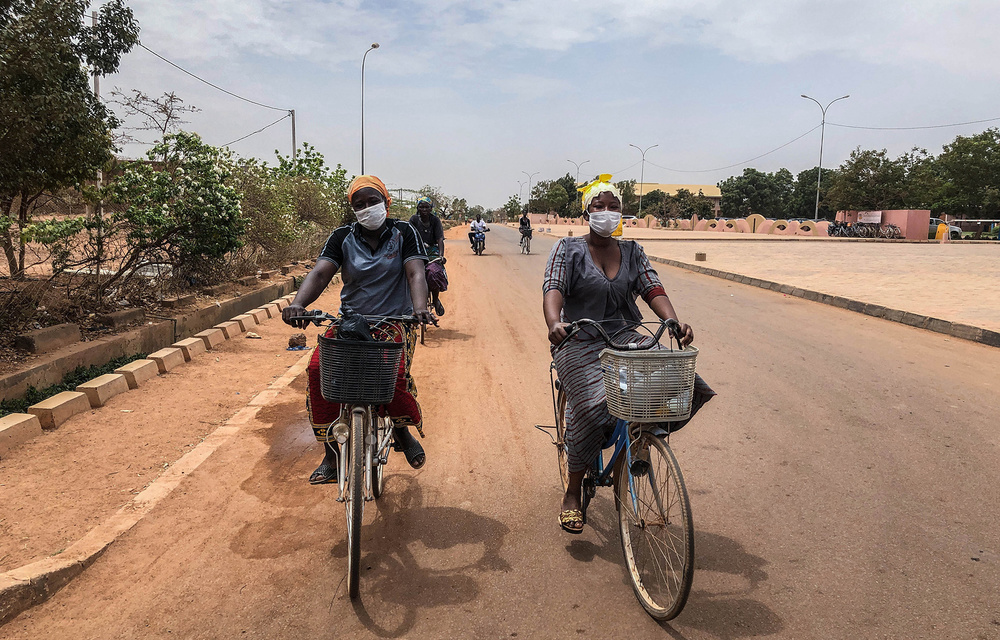Residents cycling in Ouagadougou, Burkina Faso (Sam Mednick/TNH)
Originally published by Foreign Policy:
On March 27, Britain’s bombastic Prime Minister Boris Johnson, announced on Twitter that he had tested positive for Coronavirus. The country’s Health Secretary Matt Hancock and Johnson’s main advisor Dominic Cummings soon followed him into self-isolation. The news was widely reported and sent shock waves through the political establishment.
Political leaders are usually insulated from major health scares by their wealth and access to private health care. But Coronavirus has already affected leaders across the world, afflicting officials in the US and Australia as well as Sophie Trudeau, the wife of the Canadian Prime Minister.
In Italy, Nicola Zingaretti, the head of the Democratic Party—a partner in the coalition government, has been infected. Roberto Stella, the President of the medical guild in Varese Province, has died. In France, Culture Minister Franck Riester is sick, along with five members of Parliament.
In the US, rumors regarding the health of President Donald Trump have been dampened after it was revealed that he tested negative for the virus, but other politicians have not been so lucky. Sen. Rand Paul of Kentucky has the virus; in New York, two members of the State Assembly have been infected, as has Francis Suarez, the mayor of Miami. Many other prominent figures have gone into self-isolation, including Sens. Rick Scott and Ted Cruz.
Coronavirus and Weak Political Institutions
Despite these high-profile cases, democratic institutions in all of these countries are likely to be robust enough to cope with the short-term incapacity or isolation of their leaders. If worse comes to worst, they also have tried and tested succession mechanisms to select new cabinet members, prime ministers, and presidents.
The consequences will be very different in countries where political institutions are weaker and where the illness or death of a leader has been known to generate the kind of power vacuum that might inspire rival leaders, opposition parties, or the military to launch a power grab. This is a particular problem in countries where checks and balances are weak and political parties don’t have strong decision-making mechanisms, which is true in parts of Africa, Asia, Latin America, and post-communist Europe. According to the researchers Rodger Govea and John Holm, 61% of leadership transitions in Africa are “unregulated”, and many of these episodes have resulted in a political crisis.
In countries where politics are more personalized, the death of a leader can trigger damaging succession battles that can split the ruling party and, in the worst cases, encourage a military coup. It is therefore extremely worrying that senior political officials and leaders have also contracted COVID-19, the disease caused by the new coronavirus, in countries such as Burkina Faso, Iran, and Nigeria — countries that are already unstable gerontocracies.
It is particularly worrying how far the coronavirus is spreading within the political elite in countries where many senior politicians are over 60, making them especially at risk. In Burkina Faso, a country that has experienced more than its fair share of instability in recent years and which is currently struggling against an insurgency, the Ministers of Foreign Affairs, Education, Interior, and Mines have all tested positive.
In Nigeria, one of the most economically and politically important countries on the continent, Abba Kyari, the Chief of Staff to 77-year-old President Muhammadu Buhari, has come down with the disease. Although media outlets have reported that Buhari tested negative, this has not stopped damaging rumors Twitter that the often-ill President has been incapacitated.

